Substance abuse can occur on its own and often does for people. More commonly, however, it appears along with other mental health conditions, like anxiety, depression, PTSD, and bipolar disorder, a phenomenon known as having “co-occurring disorders” or a “dual diagnosis.” Individuals struggling with mental health concerns are more likely to have substance use disorders (SUD) compared to those without mental health issues. Conversely, the same is true.
What is a co-occurring disorder, exactly? What’s a dual diagnosis, and how can a person get help? Learning more about the link between addiction and mental health concerns can lead you or a loved one to sustainable recovery.
If you or a loved one struggles with both SUD and mental health issues, Athens Addiction Recovery Center can help. Our dual diagnosis treatment center in Athens, Georgia, offers superior outpatient treatment for co-occurring mental health and substance use disorders. Reach out online or call 844.959.4998 to learn more about dual diagnosis vs co-occurring disorders, our treatment programs, and how we can help you or your loved one.
Understanding Co-Occurring vs. Dual Diagnosis
“Dual diagnosis” and “co-occurring disorders” are terms used to describe the connection between SUD and mental health issues. While these terms are often used interchangeably, the two have subtle differences. The critical difference is the diagnosis.
In dual diagnosis, there are two or more separate, distinct diagnoses. With co-occurring disorders, a mental health condition may have led a person to self-medicate with drugs and alcohol, or the effects of SUD may have led to the development of a mental health concern. In either case, the two are directly linked.
What’s a Dual Diagnosis?
A dual diagnosis emphasizes the presence of two (or more) distinct and diagnosable conditions co-occurring with a focus on the interactions between the two. While dual diagnosis is most often used for SUD and mental health conditions, it can include physical health conditions as well. For example, a person may be diagnosed with alcohol use disorder, depression, and alcoholic liver disease.
What Is a Co-Occurring Disorder?
Co-occurring disorder is a broader term that encompasses any combination of mental health and substance use issues, including situations where neither condition meets the criteria for a formal diagnosis. Generally, the different conditions can be more directly linked to one another. For example, the use of alcohol to manage anxiety symptoms may result in alcohol use disorder (AUD), or your AUD may create anxiety.
Do You Need Dual Diagnosis Treatment?
Identifying a dual diagnosis or co-occurring disorder can be challenging, especially if you are unaware of the signs and symptoms. Symptoms can vary significantly between individuals and depend upon which disorders are present. For example, a person with anxiety and prescription drug addiction will present different symptoms than someone with depression and alcohol use disorder.
That said, there are some common signs and symptoms of dual diagnosis or co-occurring disorders, including:
- Difficulty maintaining daily responsibilities at work, school, or home
- Dramatic mood swings or changes in behavior
- Angry, violent, or reckless behavior
- Significant changes in sleeping and eating habits
- Withdrawal from friends, family, and previously enjoyed activities
- Inability to maintain healthy interpersonal relationships
- Pervasive feelings of hopelessness, worthlessness, and despair
- Financial problems or legal issues
- Engaging in self-harm or destructive behaviors
- Persistent thoughts about death, dying, or suicide
Proper dual diagnosis treatment must be addressed because when one issue is left untreated, both usually worsen, and people become stuck in a cycle of chronic relapse. Effective treatment requires an integrated approach that provides education about each condition, how they interact, and their effect on overall well-being.
Call Today to Schedule an Appointment at Athens Addiction Recovery Center to Discuss Dual Diagnosis Treatment
Living with untreated dual diagnosis or co-occurring disorders presents challenges in all areas of daily life. Through outpatient dual diagnosis treatment at Athens Addiction Recovery Center, you can receive integrated care in a safe, supportive environment without stepping away from your daily responsibilities. Call 844.959.4998 or contact us online to learn about our dual diagnosis treatment program.

